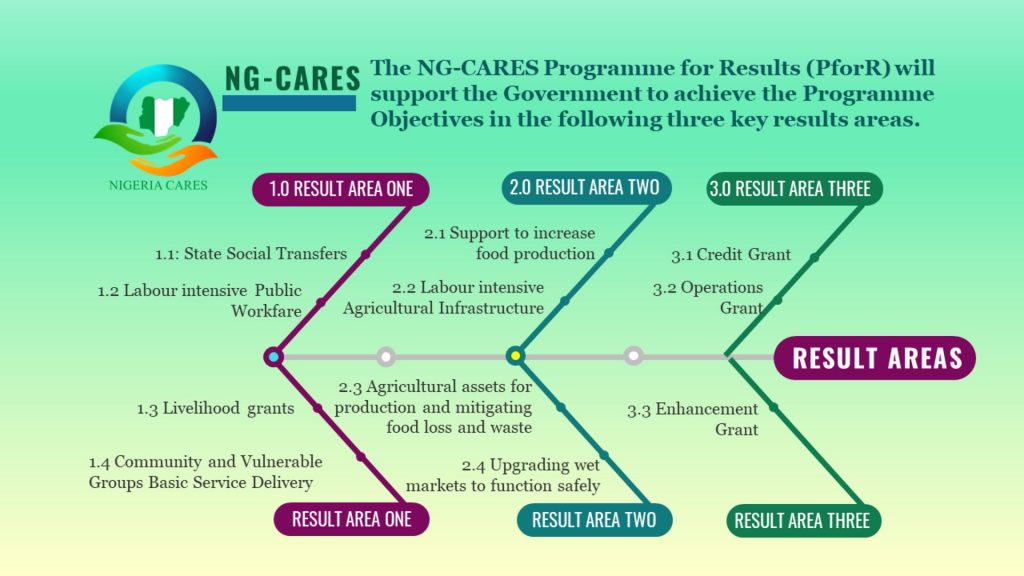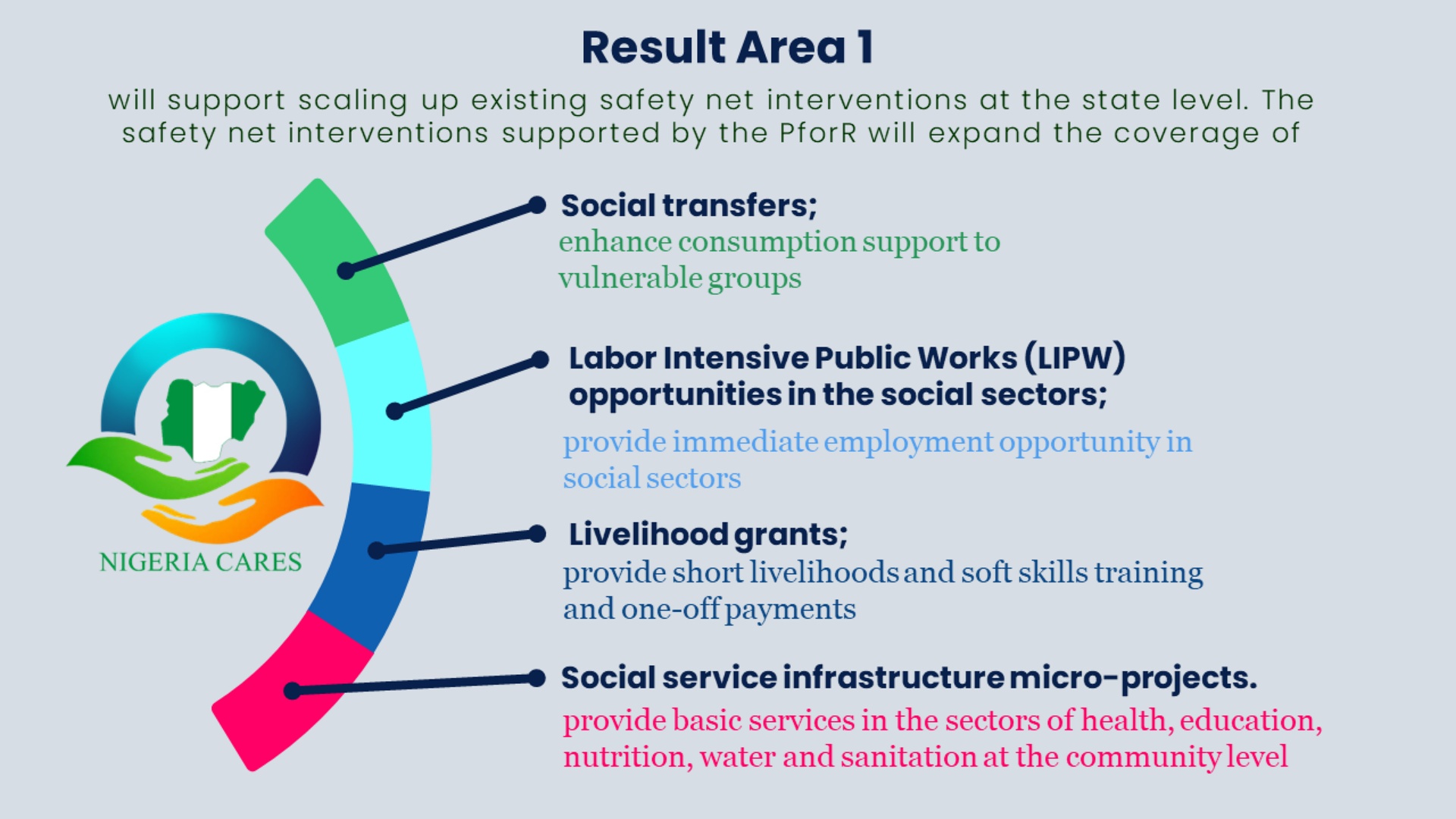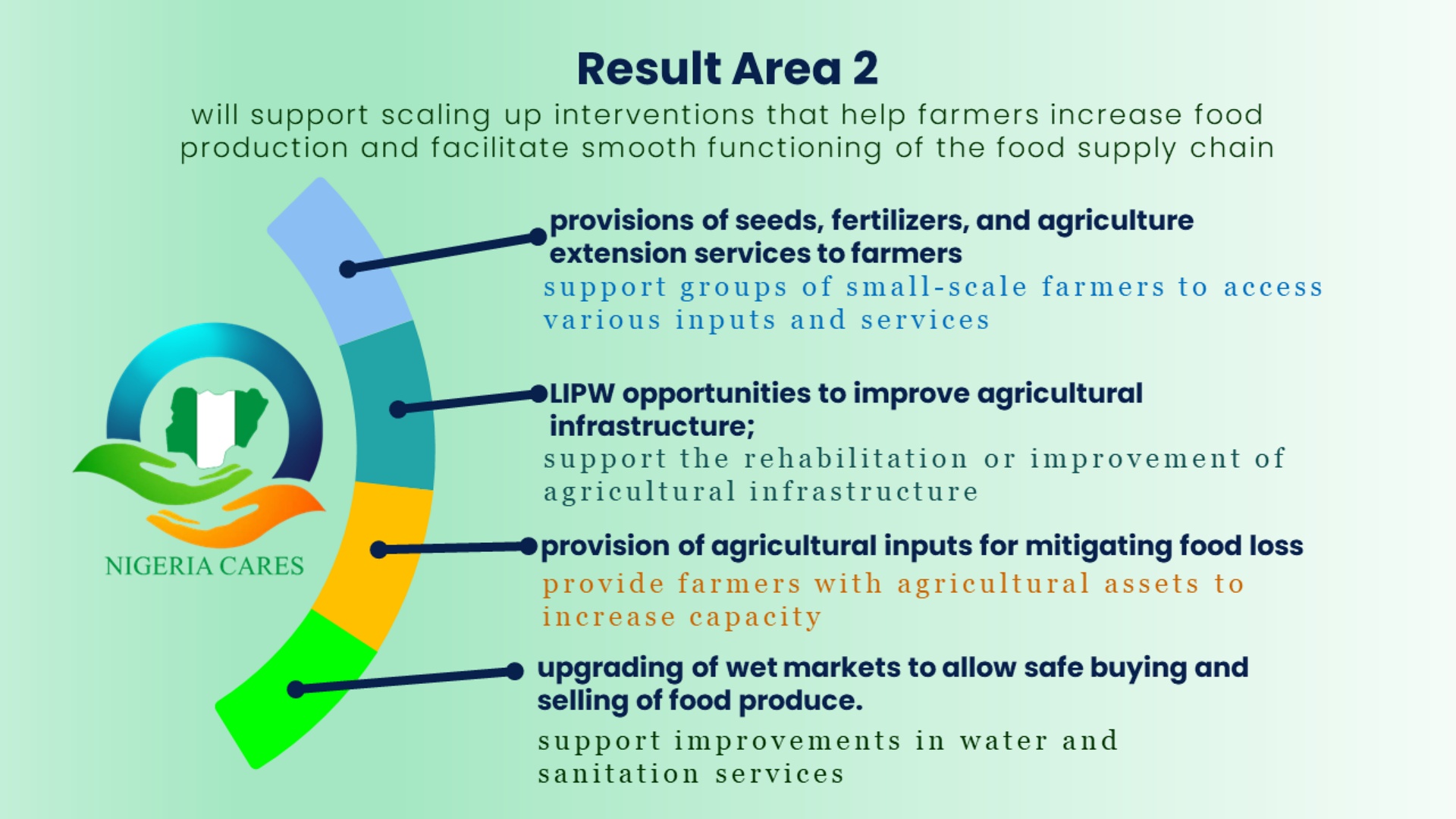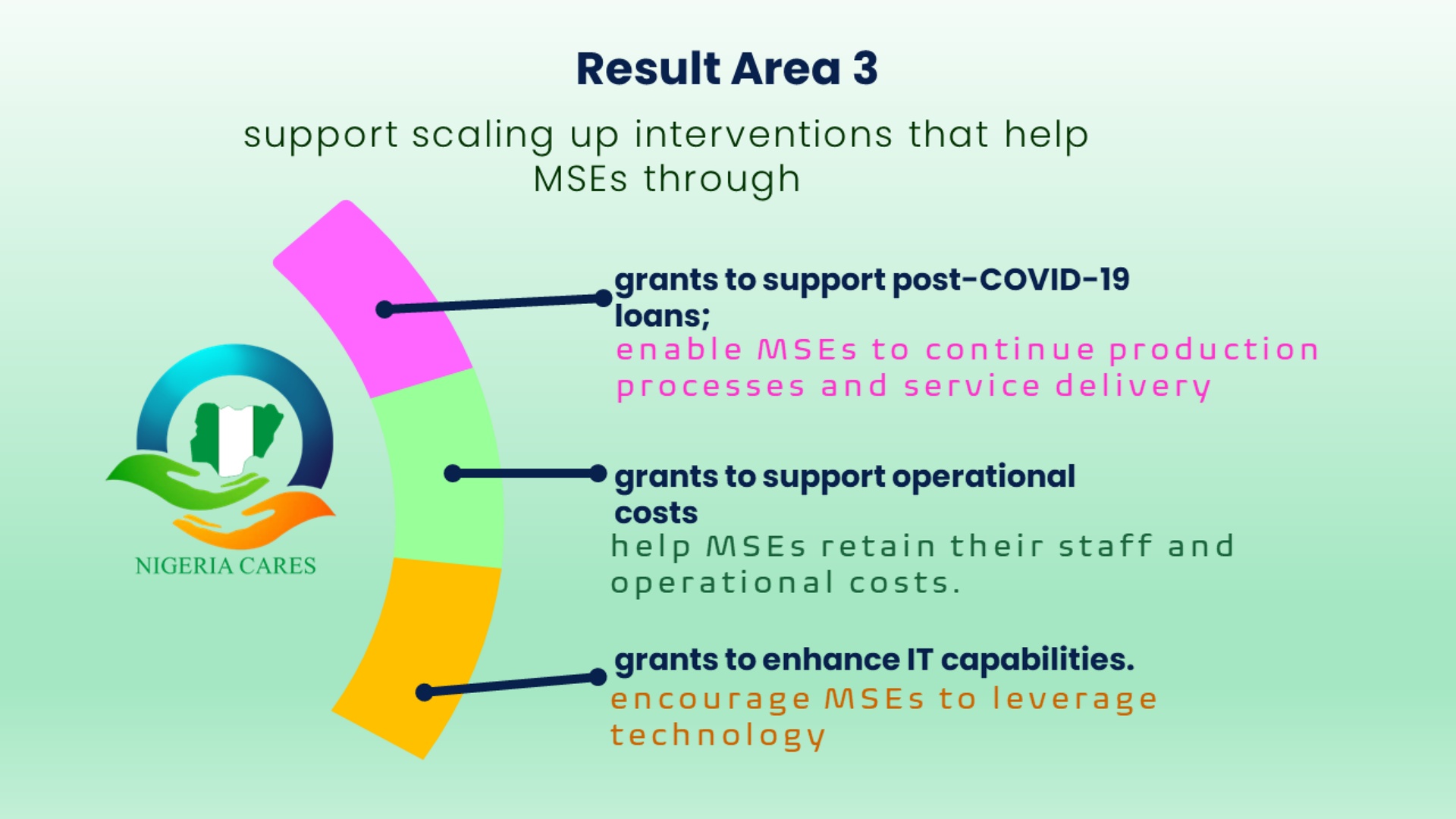What is NG-CARES – 2
Nigeria COVID-19 Action Recovery And Economic Stimulus
RESULTS AREAS

NG-CARES Programme is anchored on three (3) Result Areas with eleven (11) Disbursement Linked Indicators (DLIs) with options of selection by the States.
RESULTS AREA 1: Increased social transfers, basic services, and livelihood support to poor and vulnerable households. This involves:
- Social Transfer to aged, physically challenged, chronically ill and urban poor;
- Labour intensive public work activities;
- Livelihood grants to economically active household members;
- Community and group investment/basic infrastructure services.
RESULTS AREA 2: Increasing food security and safe functioning of food supply chains for poor households. This is an agriculture-related activity that cut across the entire Agriculture value chain such as:
- Provision of agricultural inputs and services;
- Labour intensive agricultural infrastructures;
- Agricultural assets for production and mitigation of food loss and waste;
- Upgrading wet markets to function safely.

RESULTS AREA 3: Facilitating recovery and enhancing capabilities of MSEs
- Provision of well-targeted conditional grants, up to 40% to co-finance loans that eligible MSEs received during the COVID-19 pandemic crisis.
- Extending conditional grants to MSEs cover up to 50% portion of the monthly operation cost of MSEs.
- Support adoption of digital payments integration and IT connection cost of MSEs,
DISBURSEMENT LINKED INDICATORS (DLI):
Programme for Result (PforR) is a World Bank instrument for development that has been adopted to finance the implementation of the NG-CARES Programme at the State and FCT. The principle of PforR mainly focuses on results. Disbursement of funds in a PforR programme is directly linked to achievements of Results. States are reimbursed after the programme has been satisfactorily implemented and verified by an Independent Verification Agent(s). There are 11 DLIs under the NG CARES Programme.

DLIs FOR RESULTS AREA 1: Increased social transfers, basic services, and livelihood support to poor and vulnerable households. :
DLI 1.1 Number of beneficiaries engaged and deployed into Labour Intensive Public
Workfare (LIPW) activities in social services and receiving stipends
DLI 1. 2 Number of beneficiaries supported with Livelihood Grants
DLI 1.3 Number of beneficiaries supported with Livelihood Grants
DLI 1.4 Number of direct beneficiaries of completed and functional Community and Basic
Service Infrastructure microprojects.
DLI FOR RESULTS AREA 2: Increasing food security and safe functioning of food supply chains for poor households.
DLI2.1 Number of farmers utilizing agricultural inputs and services from the Program.
DLI2.2 Number of farmers accessing improved agricultural infrastructure
DLI2.3 Number of farmers utilizing agricultural assets (production and small-scale primary
processing) provided by the Program
DLI2.4: Number of existing wet markets with upgraded water and sanitation service

DLIs FOR RESULTS AREA 3
DLI3.1 Number of firms receiving MSE Matching Grants to support new loans originated
after June 16, 2020
DLI3.2 Number of firms receiving Operational Support Grants
DLI3.3 Number of firms receiving IT Enhancement Grants
Anchored on the World Bank’s financing instrument of PforR, States can only get funding after the Independent Verification Agent visits which are once every six months followed by a No Objection (NOB) obtained from the World Bank. The FCSU reimburses the States and FCT funds spent in implementing the verified project based on World Bank NOB.
As a PforR programme, Monitoring and Evaluation is key in the implementation. NG CARES is so designed that there are three levels of M&E. The FCSU conducts routine M&E on the States and FCT, there is also the third-party Monitoring by Civil Society Group to undertake Beneficiary Assessment using Social Accountability and Citizens Engagement tools and visits by IVA to verify claims or results achieved by States. The IVA is a major component in NG CARES and it is responsible for preparing verification reports in line with the Verification Protocol and certifying the achievements of the DLIs indicated to be verified.
Up Next: NG-CARES Institutional Arrangement (Federal) – CLICK HERE



